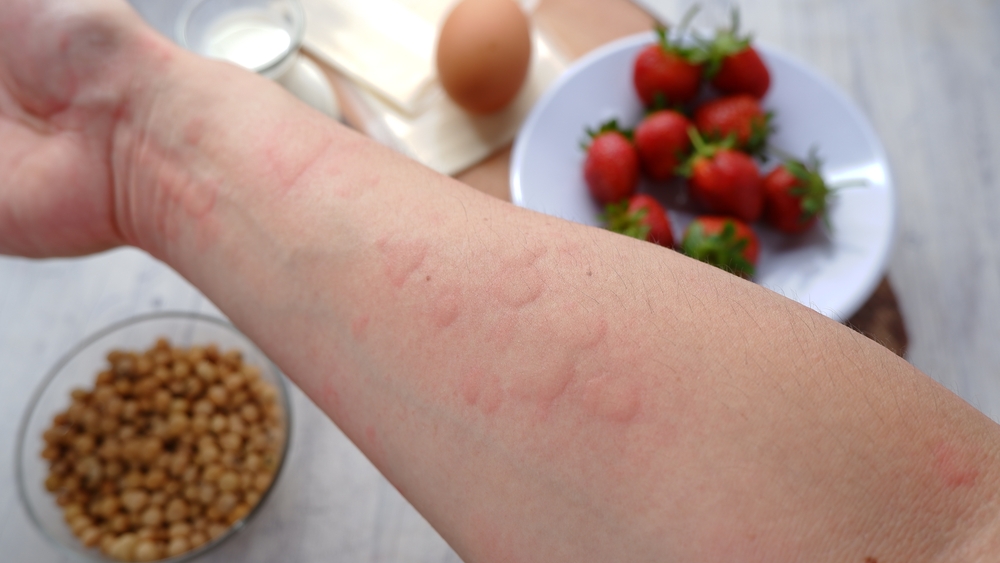Dupilumab (Dupixent, Sanofi & Regeneron) performed well in biologic-naive patients with uncontrolled chronic spontaneous urticaria (CSU) who received background therapy with antihistamines, according to a late-breaking oral presentation at the American College of Allergy, Asthma and Immunology (ACAAI) 2024 Annual Scientific Meeting in Boston, MA.
Treatment with dupilumab significantly reduced itch and urticaria activity scores from baseline, and 41% of patients achieved well-controlled disease status, the Phase 3 LIBERTY-CUPID Study C study showed.
The new data support U.S. regulatory resubmission for dupilumab in CSU by year-end. If approved, dupilumab would be the first new targeted treatment for people living with chronic spontaneous urticaria in more than 10 years.
Dupilumab has been approved for CSU in Japan, the United Arab Emirates (UAE) and is also under regulatory review in the European Union based on earlier trial readouts. Outside of Japan and the UAE, the safety and efficacy of dupilumab for CSU has not been fully evaluated by any regulatory authority.
“These data confirm results seen in the previous Study A and reinforce the potential of Dupixent to significantly alleviate symptoms for patients, helping them to better control this challenging disease,” says Thomas B. Casale, MD,
a Professor of Internal Medicine at Morsani College of Medicine at the University of South Florida in Tampa, FL, in a news release. The LIBERTY-CUPID Phase 3 study program evaluating dupilumab for CSU consists of Study A, Study B, and Study C.
Study C enrolled 151 children and adults who were randomized to receive dupilumab (n=74) or placebo (n=77) added to standard-of-care histamine-1 (H1) antihistamines. At 24 weeks, dupilumab demonstrated significant improvements compared to placebo on:
- Itch severity score (8.64- vs. 6.10-point reduction from baseline)
- Urticaria (itch and hive) activity score (15.86- vs. 11.21-point reduction from baseline)
- Well-controlled disease status (urticaria activity score ≤6; 41% vs. 23%)
- Complete response (urticaria activity score=0; 30% vs. 18%)
The safety results in Study C were generally consistent with the known safety profile of dupilumab in its approved dermatological indications. Overall rates of treatment emergent adverse events (AEs) were 53% for both dupilumab and placebo. AEs more commonly observed with dupilumab (≥5%) compared to placebo included injection site reactions (12% vs. 4%), accidental overdose (7% vs. 3%) and COVID-19 infection (8% vs. 5%).


